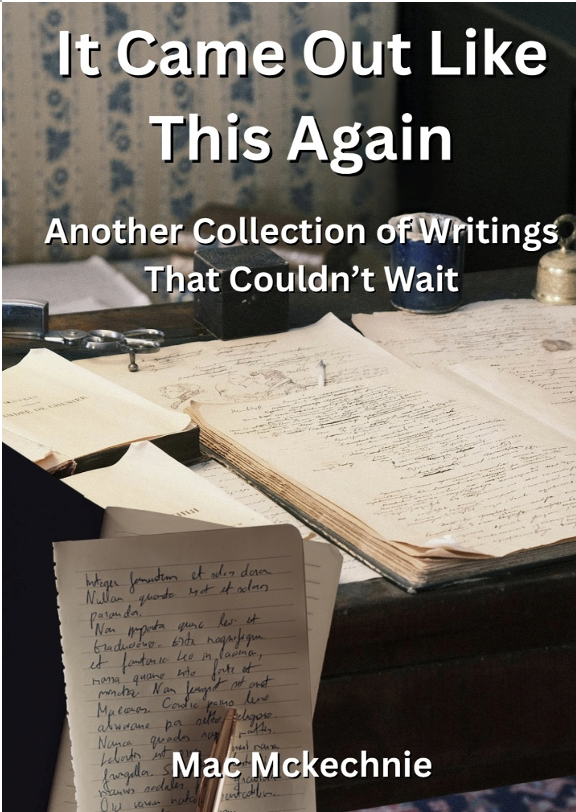
By Mac Mckechnie
Tom hadn’t expected the silence to be the hardest part. Not the nightmares, or the way his heart kicked at loud noises — but the quiet. The kind that crept between him and Sophie at the breakfast table, where once there had been toast crumbs and laughter. Now, even their little boy, Jack, seemed unsure whether to run into his arms or retreat behind the sofa. Afghanistan had taken its toll, but it was back home, in the stillness of everyday life, that Tom felt most lost.
He’d been home six months. His boots were by the door, polished out of habit. His duffel bag still stencilled with his army number and Corporal Tom Sanderson sat in the wardrobe, zipped shut and untouched. Sophie had gently suggested he get back into some kind of routine, maybe find part-time work or speak to the veterans’ counsellor, but Tom always nodded and changed the subject. He wasn’t ready.
He didn’t know if he’d ever be ready.
Sometimes he walked the village lanes at dawn, before Jack woke up. Just to breathe. To feel the wind on his face. Other times he sat in the back garden and stared at the lawn until Sophie coaxed him in with a mug of tea. Occasionally, a neighbour would nod hello over the fence. Tom would nod back, but never stop to chat.
The worst part was knowing he was scaring them. Sophie never said it outright, but he could feel it in her careful movements, her constant checking. Jack was quieter now too. Once a little whirlwind of chatter, he now spoke in cautious questions.
“Are you okay today, Daddy?”
Tom had nodded, smiled too fast. “Course I am, champ.”
But the smile didn’t reach his eyes. Jack had seen it. Kids always see it.
He hadn’t always been like this. In the army, Tom had been known for his calm under pressure. He was the one other lads looked to when things went wrong. Back then, he could fix anything with his hands — broken kit, a jammed engine, even the odd scuffed morale. They called him “Steady Sanderson.”
His mate Danny used to joke that if Tom said it would be okay, then it probably would. They’d served two tours together, bonded over terrible rations and endless nights under desert skies. Danny had a photo of his twin girls taped inside his helmet. He talked about them every night, about the treehouse he planned to build when he got back.
But Danny never got to build it.
One morning, just a routine patrol, a dusty track that looked like a hundred others. A pressure plate buried deep, and then the world exploded. Danny was gone before Tom could reach him. No time. No chance.
After that, Tom shut down. He couldn’t look at treehouses. Couldn’t look at hope.
What haunted him most wasn’t the blast — it was the silence after. That awful, endless silence.
And that same silence followed him home.
It changed the day of the birdhouse.
Tom had been clearing the old shed out. Sophie had asked gently, suggesting it might be good to sort through things. He’d grunted but agreed. The smell of old paint tins and rusted tools hit him hard, triggering a flicker of something too close to field tents and cordite. He steadied himself, forced air into his lungs, and reached for a box of tangled cords.
Jack wandered in behind him, dragging a wooden birdhouse.
“Look what I found!” Jack beamed. “Can we fix it, Daddy?”
It was cracked and weathered, the paint flaking like old sunburn. But in Jack’s eyes, it was treasure.
Tom hesitated.
“Please?” Jack asked.
Tom looked at the birdhouse. Then at Jack.
“Yeah,” he said finally. “We can fix it.”
They spent the afternoon sanding it down. Jack held the brush while Tom guided his hand. They painted it a bright robin’s-egg blue. Sophie brought lemonade and watched from the patio, quiet but smiling. That night, Jack fell asleep holding one of the leftover paintbrushes.
The next day, Jack asked to build a flower box. Tom didn’t say no. His hands remembered how to work wood. His mind focused, even if only for minutes at a time. It gave him something tangible to do, something real.
They planted seeds Sophie had bought and forgotten. Jack labelled them with wobbly letters. Every morning, he ran out to check if anything had grown.
“Roots take time,” Tom told him.
“Like you?” Jack asked.
Tom paused. Then nodded. “Yeah, champ. Like me.”
They built more things. A garden bench. A feeder. A birdbath from an old dish. Tom began to hum as he worked. He even caught himself whistling one morning. Sophie noticed. She didn’t say anything, just squeezed his hand at dinner and passed the potatoes with a smile that held more than words.
Jack began telling neighbours proudly, “Me and Dad made that!”
One afternoon, Mr. Cullen next door asked if Tom might help him fix a broken trellis. Tom said yes. His first yes to someone outside the house since he’d come home. Over tea in Mr. Cullen’s greenhouse, they talked about tomatoes, then memories, then war. Cullen had served in Bosnia. They didn’t say much. But that silence was safe, too.
That evening, Sophie showed Tom an old photo on her phone. It was from the morning he’d left for deployment — the last hug on the doorstep, Jack’s hand reaching up, his face confused.
“I keep it,” she said quietly. “To remind myself that love is stronger than fear.”
Tom stared at it for a long time. “I never wanted to leave you with this version of me.”
“We never left you,” she replied. “We just waited for you to come home.”
But healing isn’t a straight line. One night, the news played footage from overseas. Explosions. Sirens. Tom froze. His fork clattered to the plate. Jack looked at him, frightened.
Tom stood abruptly and left the room.
He spent the night on the sofa. Dreams came in thick waves, choking and breathless. He woke up sweating.
In the morning, Sophie brought him coffee. No lecture. Just warmth.
“You don’t have to be fixed,” she said quietly. “Just here.”
Tom nodded, tears stinging behind his eyes. “I want to be better.”
“Then let us be part of that.”
He started seeing a counsellor once a week. Not every session was easy. Some left him drained. Others opened windows he’d nailed shut. But gradually, he learned to speak the unspeakable. He started journaling again, scribbling thoughts on paper late at night.
He also joined a local veterans’ walk, just once a month. Quiet men with loud stories. Some limping, some steady, all understanding. They didn’t ask. They just walked. And walking, somehow, helped.
He even began volunteering at the village school garden project, helping kids build raised beds. One of the children, a shy girl named Millie, drew him a picture of a robin nesting in a blue birdhouse. On the back, she’d written, “Thank you for fixing things.”
Tom started writing letters to Danny. Not to post — just to get the weight out. In one letter, he wrote, “I’m building things again, mate. Not just with wood. With my hands, and my heart.”
One day in spring, Jack came home from school clutching a certificate.
“I won!” he shouted.
“What for?” Sophie asked.
“Best project! I wrote about my dad. About our birdhouse and the garden. And how he helped things grow again.”
Tom blinked, voice caught in his throat. “You wrote about me?”
Jack nodded. “You’re my hero.”
Later that week, Tom took Sophie and Jack for a walk. Nothing special. Just the woods near the edge of the village. Wild garlic bloomed underfoot. Birds called from the canopy. Jack ran ahead, waving a stick like a flag. Sophie reached for Tom’s hand.
“You’re different,” she said.
“I’m trying,” he replied. “Every day.”
“I see it.”
That night, Tom sat on the garden bench they’d built, stars overhead, quiet in the best way. He could hear Sophie humming in the kitchen. Jack’s window was glowing with bedtime light. From the birdhouse, a robin chirped softly into the dark.
He wasn’t all better.
But he was home.
And he was walking toward the light.
One step at a time.
Author Bio:
This short story “The Long Road Home” is one of the stories in the collection It Came Out Like This Again and is now available as a paperback on Amazon is a collection that celebrates instinctive storytelling, emotional truth, and the strange beauty of second chances. It’s not just something to read – it’s something to keep close.
Mac Mckechnie is a Yorkshireman and lives in Barnsley South Yorkshire. Now aged 75 he has the luxury of sufficient time on his hands to go back to his love of writing. He leads a creative writing group in Barnsley, and one in Wakefield, and a lot of his ideas are sparked from work within those groups,
Mac is a family man at heart, has a few hobbies, is a member of the organisation u3a, which is an organisation for older people, where he leads a group with the sport Kurling, and also the writing group. Mac is an active Christian, and the Pastor of his local church in Barnsley.
Mac has written several books, Sci-Fi being his favourite genre, but confesses that he is drawn to simple animal adventures from his younger days. This book is a simple collection of short stories and poems, owing much of its creation to stories from Bu3a creative writing groups that Mac leads. His next animal book “Tilly” about the light-hearted adventures of a Border Collie in East Yorkshire is out soon on paperback and will also be available on Amazon.
Click here to Buy the Book on Amazon
Contact Author:
The author Mac Mckechnie can be contacted by email: mckechnie31@btinternet.com





